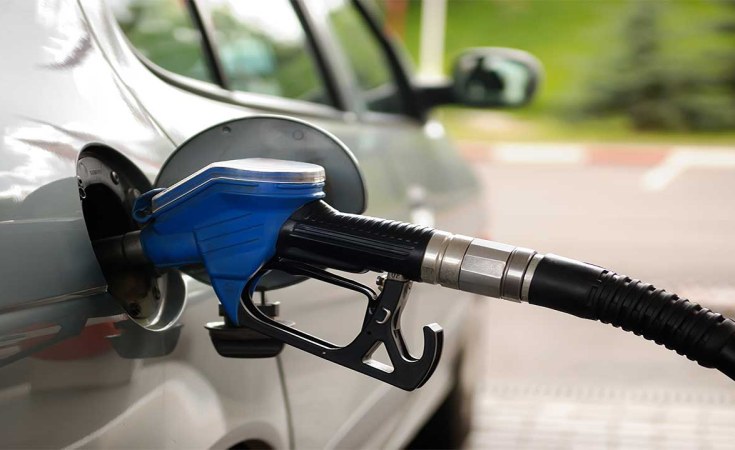The huge debt choking the NNPC is amid the fuel scarcity situation across the country.
As Nigerians lament the ripple effect of fuel scarcity across the country, the nation's oil company, the NNPC, continues to groan under the weight of huge debts owed both domestic and foreign suppliers of petroleum products.
Sources familiar with details of the matter told PREMIUM TIMES on Saturday that there appears to be no solution to the fuel crisis in the short term, as suppliers are being owed $6 billion by the Nigerian National Petroleum Company Limited (NNPC Ltd).
In a development that could worsen the fuel crisis in the coming days, sources said vessel and truck owners have slowed down on supply and import amid mounting debts.
"Others who have (petroleum) products in their depots are slowing down supply to tankers," one of the major suppliers told PREMIUM TIMES.
As a result, the state-owned oil firm has been rationing stock and prevailing on major suppliers not to cut off supply.
An insider told PREMIUM TIMES that the debt situation is so critical and constitutes a major threat to the NNPC's fiscal survival and indeed Nigeria's energy sufficiency plans.
Although NNPC typically operates as sole importer of petroleum products, it partners with domestic and foreign suppliers to ensure adequate supply.
The oil company suppliers include international traders like Gunvor, Vitol, Mercuria, as well as domestic trading partners.
Reuters had in April reported that the NNPC Ltd owed around $3 billion to fuel traders for imported petrol.
Last month, the NNPC Ltd in reaction to a report that the company is indebted to international oil traders to $6.8 billion and had not remitted revenues to the Federation Account since January, among other allegations, said it does not owe the sum of $6.8 billion to international traders.
Olufemi Soneye, the chief corporate communications officer of the company, said in the oil trading business, transactions are carried out on credit, so it is normal to owe at one point or another.
"Consequently, the following clarifications have become necessary: That NNPC Ltd does not owe the sum of $6.8 billion to any international trader(s)."
"But NNPC Ltd, through its subsidiary, NNPC Trading, has many open trade credit lines from several traders. The company is paying its obligations of related invoices on a first-in-first-out (FIFO) basis.
"It is not correct to say that NNPC Ltd has not remitted any money to the Federation Account since January. NNPC Ltd and all its subsidiaries remit their taxes to the Federal Inland Revenue Service (FIRS) regularly," Mr Soneye said at the time.
No Respite for NNPCL
On Saturday, sources told PREMIUM TIMES that at least five vessels have failed to deliver fuel in the last five days, amid concerns over unpaid debts.
A government source told this newspaper on Saturday that $300 million was recently released to the NNPC Ltd by the Ministry of Finance Incorporated to defray concerns, but the intervention wasn't significant enough to address the financial strain.
As part of measures to cushion the impact of its numerous economic reforms, the government through the state oil firm sells petrol at prices below the market price.
Since private importers cannot recoup their costs, the NNPC---as sole importer--supplies the nation with about 40 million litres per day, with attendant increase in subsidy "shortfalls".
As the local currency weakens against the dollar, NNPC records massive losses on the fuel being sold at below market prices, sources said.
Consequently, as the oil firm struggles to meet demand, debts owed to suppliers balloons, with attendant disruption in supply and nationwide scarcity.
Scarcity to worsen in days
In recent months, fuel scarcity hit major cities across Nigeria, with attendant effects on businesses and households.
This also prompted commercial bus drivers to increase their fares in major towns and cities, incuding the nation's capital. As a result, black marketers made brisk business selling to willing buyers at higher prices ranging from N1,000 to N1,200.
In the wake of the worsening fuel crisis, Mr Soneye told PREMIUM TIMES at the time that the challenge in the supply of petrol currently being experienced in some areas across the country is a result of logistics issues and they had been resolved.
In Abuja, this newspaper found that the long queues in fuel stations reduced significantly in recent days, while prices increased. But the fuel crisis has remained a burden in Lagos and other parts of the country.
Consequently, there has been an attendant increase in transport fares and costs of good and services.
NNPC admits debt headache
On Sunday, Mr Soneye could not confirm the exact amount the NNPC owes when PREMIUM TIMES asked for details.
However, he said, in oil trading, transactions on credit are normal practices.
"In the oil trading business, transactions are often carried out on credit, so it is normal to have outstanding balances at certain times. Additionally, through our subsidiary, NNPC Trading, we maintain open trade credit lines with several traders. I will need some time to provide you with the exact amount," Mr Soneye wrote in a text response to our enquiry.
In a separate statement on Sunday evening, Mr Soneye said that the NNPC Ltd faces financial strain due to Premium Motor Spirit (PMS) supply costs, impacting supply sustainability.
"NNPC Ltd has acknowledged recent reports in national newspapers regarding the company's significant debt to petrol suppliers. This financial strain has placed considerable pressure on the company and poses a threat to the sustainability of fuel supply," Mr Soneye said.
He explained that in line with the Petroleum Industry Act (PIA), NNPC Ltd remains dedicated to its role as the supplier of last resort, ensuring national energy security.
"We are actively collaborating with relevant government agencies and other stakeholders to maintain a consistent supply of petroleum products nationwide," he said.


